-
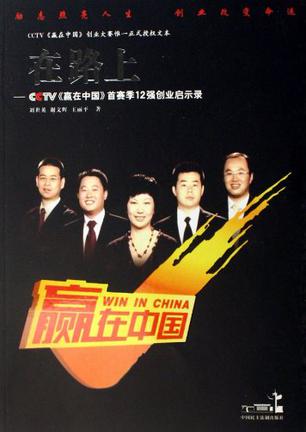
在路上
《在路上:CCTV赢在中国首赛季12强创业启示录》主要内容:励志照亮人生,创业改变命运!CCTV《赢在中国》创业大赛惟一正式授权文本!《在路上:CCTV赢在中国首赛季12强创业启示录》中记录的《赢在中国》12强选手,是从12万报名选手中走过来的,他们何以脱颖而出?他们身上凝聚着什么样的力量?这12位选手,创业是成功还是失败依然是未知数,但他们出现在公众的视野中,对很多创业者是一种鼓舞,也是一种借鉴。 -

How to Get Rich
First he made two billion dollars. Then he made The Apprentice. Now The Donald shows you how to make a fortune, Trump style. HOW TO GET RICH Read by Barry Bostwick with an introduction read by the Author Real estate titan, bestselling author, and TV impresario Donald J. Trump reveals the secrets of his success. Over the years, everyone has urged Trump to write on this subject, but it wasn't until NBC and executive producer Mark Burnett asked him to star in The Apprentice that he realized just how hungry people are to learn how great personal wealth is created and first-class businesses are run. In Trump: How To Get Rich, Trump tells all -- about the lessons learned from The Apprentice, his real estate empire, his position as head of the 20,000-member Trump Organization, and his most important role, as a father who has successfully taught his children the value of money and hard work. With his characteristic brass and smarts, Trump offers insights on how to: • Invest wisely • Impress the boss and get a raise • Manage a business efficiently • Hire, motivate, and fire employees • Negotiate anything • Maintain the quality of your brand • Think big and live large Plus, The Donald tells all on the art of the hair! -
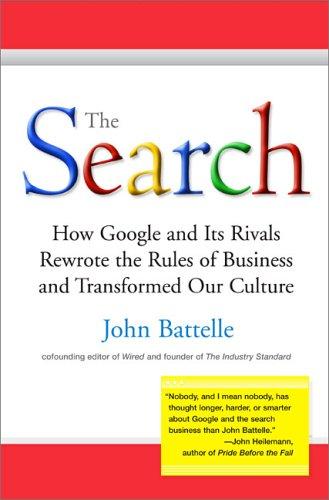
The Search
What does the world want? According to John Battelle, a company that answers that question -- in all its shades of meaning -- can unlock the most intractable riddles of both business and culture. And for the past few years, that's exactly what Google has been doing. Jumping into the game long after Yahoo, Alta Vista, Excite, Lycos, and other pioneers, Google offered a radical new approach to search, redefined the idea of viral marketing, survived the dotcom crash, and pulled off the largest and most talked about initial public offering in the history of Silicon Valley. But The Search offers much more than the inside story of Google's triumph. It's also a big-picture book about the past, present, and future of search technology, and the enormous impact it is starting to have on marketing, media, pop culture, dating, job hunting, international law, civil liberties, and just about every other sphere of human interest. More than any of its rivals, Google has become the gateway to instant knowledge. Hundreds of millions of people use it to satisfy their wants, needs, fears, and obsessions, creating an enormous artifact that Battelle calls "the Database of Intentions." Somewhere in Google's archives, for instance, you can find the agonized research of a gay man with AIDS, the silent plotting of a would-be bombmaker, and the anxiety of a woman checking out her blind date. Combined with the databases of thousands of other search-driven businesses, large and small, it all adds up to a goldmine of information that powerful organizations (including the government) will want to get their hands on. No one is better qualified to explain this entire phenomenon than Battelle, who cofounded Wired and founded The Industry Standard. Perhaps more than any other journalist, he has devoted his career to finding the holy grail of technology -- something as transformational as the Macintosh was in the mid- 1980s. And he has finally found it in search. Battelle draws on more than 350 interviews with major players from Silicon Valley to Seattle to Wall Street, including Google cofounders Larry Page and Sergey Brin and CEO Eric Schmidt, as well as competitors like Louis Monier, who invented AltaVista, and Neil Moncrief, a soft-spoken Georgian whose business Google built, destroyed, and built again. Battelle lucidly reveals how search technology actually works, explores the amazing power of targeted advertising, and reports on the frenzy of the Google IPO, when the company tried to rewrite the rules of Wall Street and declared "don't be evil" as its corporate motto. For anyone who wants to understand how Google really succeeded -- and the implications of a world in which every click can be preserved forever -- THE SEARCH is an eye-opening and indispensable read. -
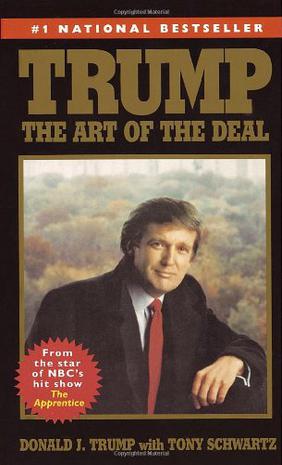
Trump
在线阅读本书 From the Impresario of NBC’s hit show The Apprentice TRUMP ON TRUMP: “I like thinking big. I always have. To me it’s very simple: if you’re going to be thinking anyway, you might as well think big.” And here’s how he does it: the art of the deal. Beginning with a week in Trump’s high-stakes life, Trump: The Art of the Deal gives us Trump in action. We see just how he operates day to day—how he runs his business and how he runs his life—as he chats with friends and family, clashes with enemies, efficiently buys up Atlantic City’s top casinos, changes the face of the New York City skyline . . . and plans the tallest building in the world. TRUMP ON TRUMP: “I play it very loose. I don’t carry a briefcase. I try not to schedule too many meetings. I leave my door open. . . . I prefer to come to work each day and just see what develops.” Even a maverick plays by rules, and here Trump formulates his own eleven guidelines for success. He isolates the common elements in his greatest deals; he shatters myths (“You don’t necessarily need the best location. What you need is the best deal”); he names names, spells out the zeros, and fully reveals the deal-maker’s art: from the abandoned property that became the Jacob K. Javits Convention Center to the seedy hotel that became the Grand Hyatt; from the race to rebuild Central Park’s Wollman Skating Rink to the byzantine saga of the property that became Trump Tower. And throughout, Trump talks— really talks—about how he does it. TRUMP ON TRUMP: “I always go into a deal anticipating the worst. If you plan for the worst—if you can live with the worst—the good will always take care of itself.” Donald Trump is blunt, brash, surprisingly old-fashioned in spots—and always, always an original. Trump: The Art of the Deal is an unguarded look at the mind of a brilliant entrepreneur and an unprecedented education in the art of the deal. It’s the most streetwise business book there is—and a sizzling read for anyone interested in money and success. From the Hardcover edition. -
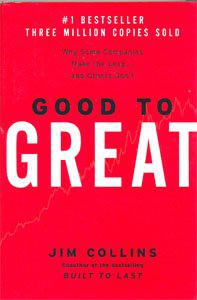
Good to Great
Five years ago, Jim Collins asked the question, "Can a good company become a great company and if so, how?" In Good to Great Collins, the author of Built to Last, concludes that it is possible, but finds there are no silver bullets. Collins and his team of researchers began their quest by sorting through a list of 1,435 companies, looking for those that made substantial improvements in their performance over time. They finally settled on 11--including Fannie Mae, Gillette, Walgreens, and Wells Fargo--and discovered common traits that challenged many of the conventional notions of corporate success. Making the transition from good to great doesn't require a high-profile CEO, the latest technology, innovative change management, or even a fine-tuned business strategy. At the heart of those rare and truly great companies was a corporate culture that rigorously found and promoted disciplined people to think and act in a disciplined manner. Peppered with dozens of stories and examples from the great and not so great, the book offers a well-reasoned road map to excellence that any organization would do well to consider. Like Built to Last, Good to Great is one of those books that managers and CEOs will be reading and rereading for years to come. --Harry C. Edwards, Amazon.com Review -
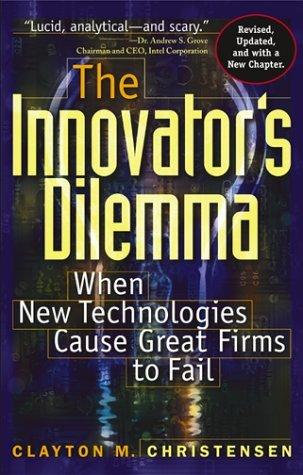
The Innovator's Dilemma
The Innovator's Dilemma demonstrates why outstanding companies that had their competitive antennae up, listened astutely to customers, and invested aggressively in new technologies still lost their market dominance. Drawing on patterns of innovation in a variety of industries, the author argues that good business practices can, nevertheless, weaken a great firm. He shows how truly important, breakthrough innovations are often initially rejected by customers that cannot currently use them, leading firms to allow their most important innovations to languish. Many companies now face the innovator's dilemma. Keeping close to customers is critical for current success. But long-term growth and profits depend upon a very different managerial formula. This book will help managers see the changes that may be coming their way and will show them how to respond for success. The Management of Innovation and Change Series.